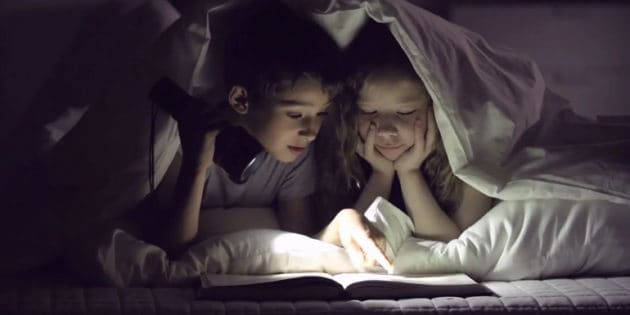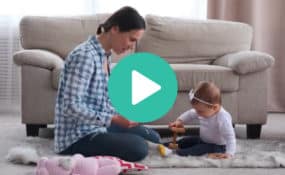So, school has been canceled and your kids are stuck at home complaining about being bored. Due to the shutdown resulting from rising covid19 cases, there aren’t many places to go, and you can’t really visit anyone. Therefore, it seems that the only thing to keep children busy is to let them watch tv or browse YouTube. Right? Wrong.
Being cooped up inside is hard. But you don’t have to result to letting your kids watch endless rounds of tv, play hours of Xbox, and constantly scroll through YouTube. Too much of that screen time in one day can actually be harmful to a child’s development. There are plenty of things that can be done around the house, at no cost, that are not only safe, but can encourage a child’s development. So, today I want to talk about an old favorite from my childhood. How many of you remember building a fort when you were young? Do you remember how much fun it was?
Most children build at least one fort over the course of their childhood, while a large number of parents has wished that they hadn’t given their child the idea to build a fort. Building forts automatically has children dragging every blanket and dining room chair in the house into the living room, often taking up most of the floor space. Most likely your children have built one before, and if they haven’t, I strongly encourage you to motivate them to get started on one.
Forts can create a home away from home for children, free from control from mom and dad. It can be an exciting and magical place for them. It’s their own private and secure world where they can let their imagination run wild.
In addition, the building of forts encourages children to rely on their own creativity. It is unstructured play time, which is extremely valuable for children. It might be hard on parents due to the amount of blankets, pillows, chairs and other items being used, but is beyond great for kids. This gives them the chance to develop skills that they will need later in life. Even if they are building their for by themselves, without the help of friends or siblings, it still helps them build the very valuable skills of self-entertaining, imagination, and creativity, in addition to experimenting with construction of structures, multiple textures, etc.
Having friends or siblings help, promotes children’s ability to work as a team, something that is essential in school or later on in the work force. Building forts with others also teaches children how to coordinate what they are doing, playfully teaching them how to get along without parental supervision and minimal parental intervention.
It is not unusual for “fort building” to not go as planned for children. A part of every fort construction effort, is that walls collapse and roofs cave in. Sometimes, there is a lack of supplies, and often the blankets aren’t long enough for what the children envisioned. All these possible short comings force children to develop problem solving skills, and if working in a group, leadership skills. As a parent we want to jump in and fix things for them. However, I would encourage you to try not to help unless absolutely necessary. Give them time and I’ll bet they come up with a solution to most of their problems on their own.
Another great skill that fort building helps develop is critical thinking. A fort doesn’t just build itself. It needs to be planned and thought out. A lot of reasoning needs to go into the plan and design. Children have to select things around the house that can be used in the design. Some things will work, some won’t. It takes creativity, out of the box thinking, and a lot of trial and error.
When you think about it, building a fort encourages children to use the scientific method. They have to come up with a hypothesis and test their ideas again and again until one of them works.
Children have a lot of free time right now. Their developing brains crave a break from computers and electronics. Even if they throw a fit over having the iPad taken away, their brains are asking for that much needed break from screen-time.
Forts also give children a sense of control. With family routines that were forced to change during the pandemic, kids need something that gives them a sense of control and building forts certainly does that.
Some of you might be the parent of a child who is either on the autism spectrum or who has a sensory processing disorder. Building and playing in a fort, can help children regulate their bodies and emotions. Forts tend to be enclosed and are often semi dark. Sound is buffered and there are a lot of tactile sensations that can be very therapeutic.
A fort can eliminate the sounds and sights that autistic or sensory sensitive children don’t do well with, and it can give them the physical solitude and quiet that they crave.
For children, everything revolves around safety and control. Children seek comfort and order. When they construct a fort, it is under their control and allows them the opportunity to restore their own sense of order. And let’s face it, during this pandemic, everything is out of order right now.
The covid-19 world that we are currently living in has us on hight alert. We are wired to protect ourselves and many children are feeling this more acutely.
Just remember, the most important aspect of building a fort, is that it can nurture your relationship with your child. However, there is one condition. The child must be in charge during the process. You can help motivate and encourage, or supply what’s requested, but all of that needs to happen without the parent taking over the process. It’s difficult for us as parents to step back, however the benefits of letting them make their fort their own, are worth it.
- The Child Development Benefits of Building Forts! - June 16, 2020
- The Child Development Benefits of Building Forts! - June 16, 2020
- The Child Development Benefits of Building Forts! - June 16, 2020







